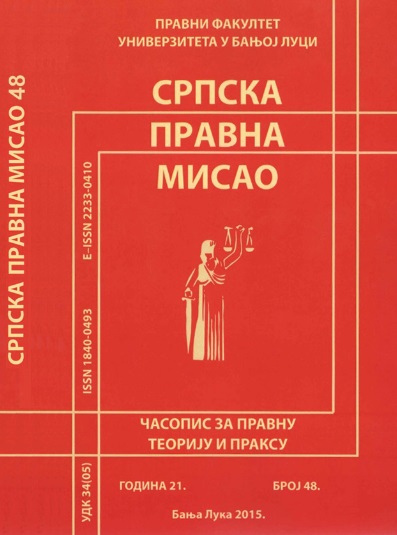EXTENDED CONFISCATION OF PROPERTY BENEFITS IN THE CRIMINAL LEGISLATION OF MONTENEGRO
DOI:
https://doi.org/10.7251/SPM1548211RAbstract
The subject of the paper's analysis is one of the most significant issues in contemporary legislation, the so-called extended confiscation of property benefits achieved through criminal activity, which does not result from a criminal offense for which criminal proceedings are being conducted. The author deals with the most important issues related to this problem, such as the international legal standards that serve as the basis for the regulation of this issue in national legislation. In national legislation, it can be regulated either by a special law or within the framework of the Criminal Code and the Code of Criminal Procedure. This second solution was accepted in the legislation of Montenegro. The Criminal Code prescribes for which criminal offenses extended confiscation can be applied and the time period for which the condition and origin of the property is examined. The Criminal Procedure Code regulated the issue of temporary confiscation of property benefits in order to ensure the execution of the decision on permanent confiscation of illegally acquired property and the issue of permanent confiscation of illegally acquired property benefits. A particularly interesting question is the transfer of the burden of proof to the defendant, who needs to prove the legality of the origin of the disputed property, as well as the question of how compatible this is with the presumption of innocence.
Downloads
Published
Issue
Section
License

This work is licensed under a Creative Commons Attribution-NonCommercial-NoDerivatives 4.0 International License.



